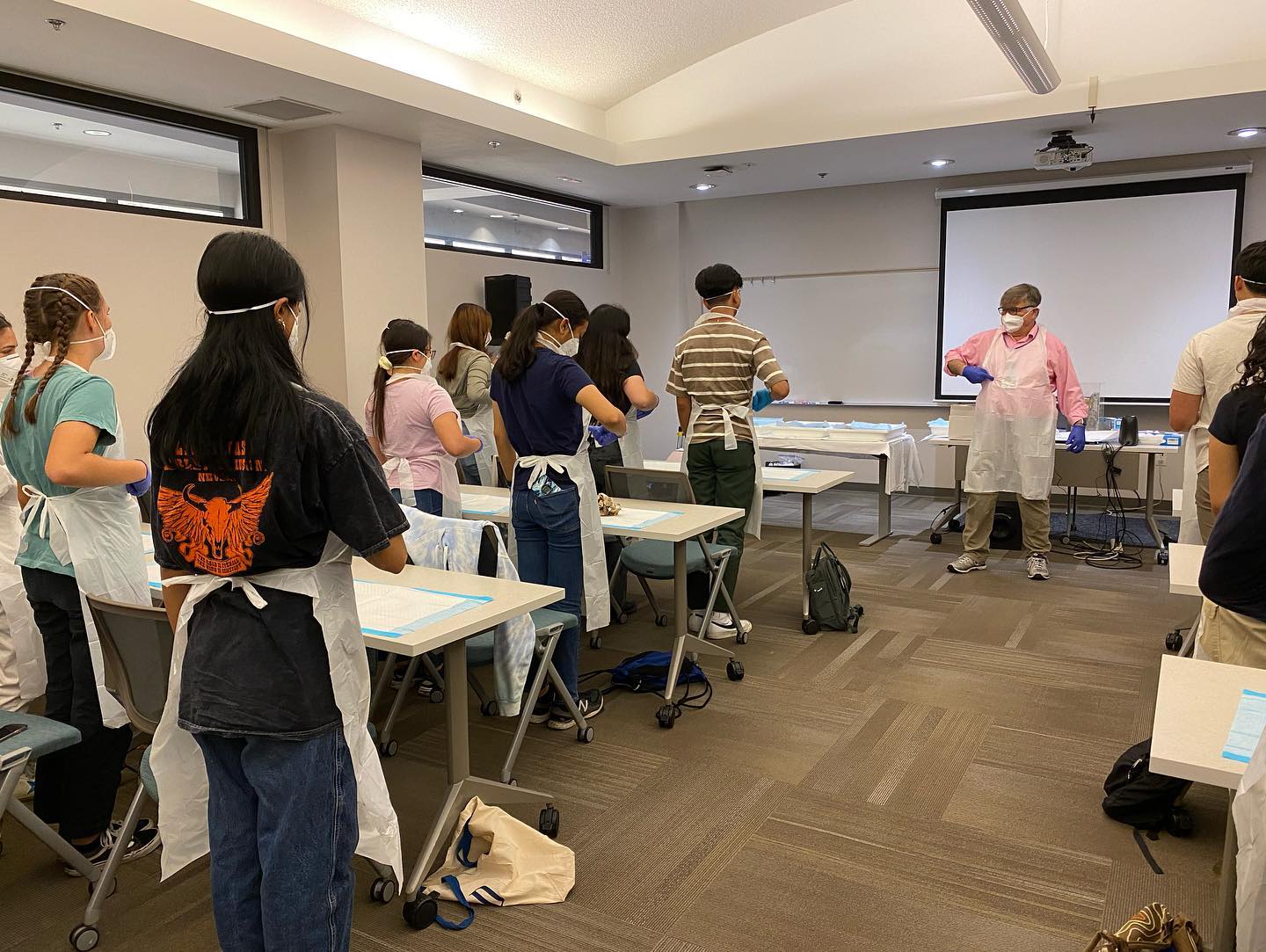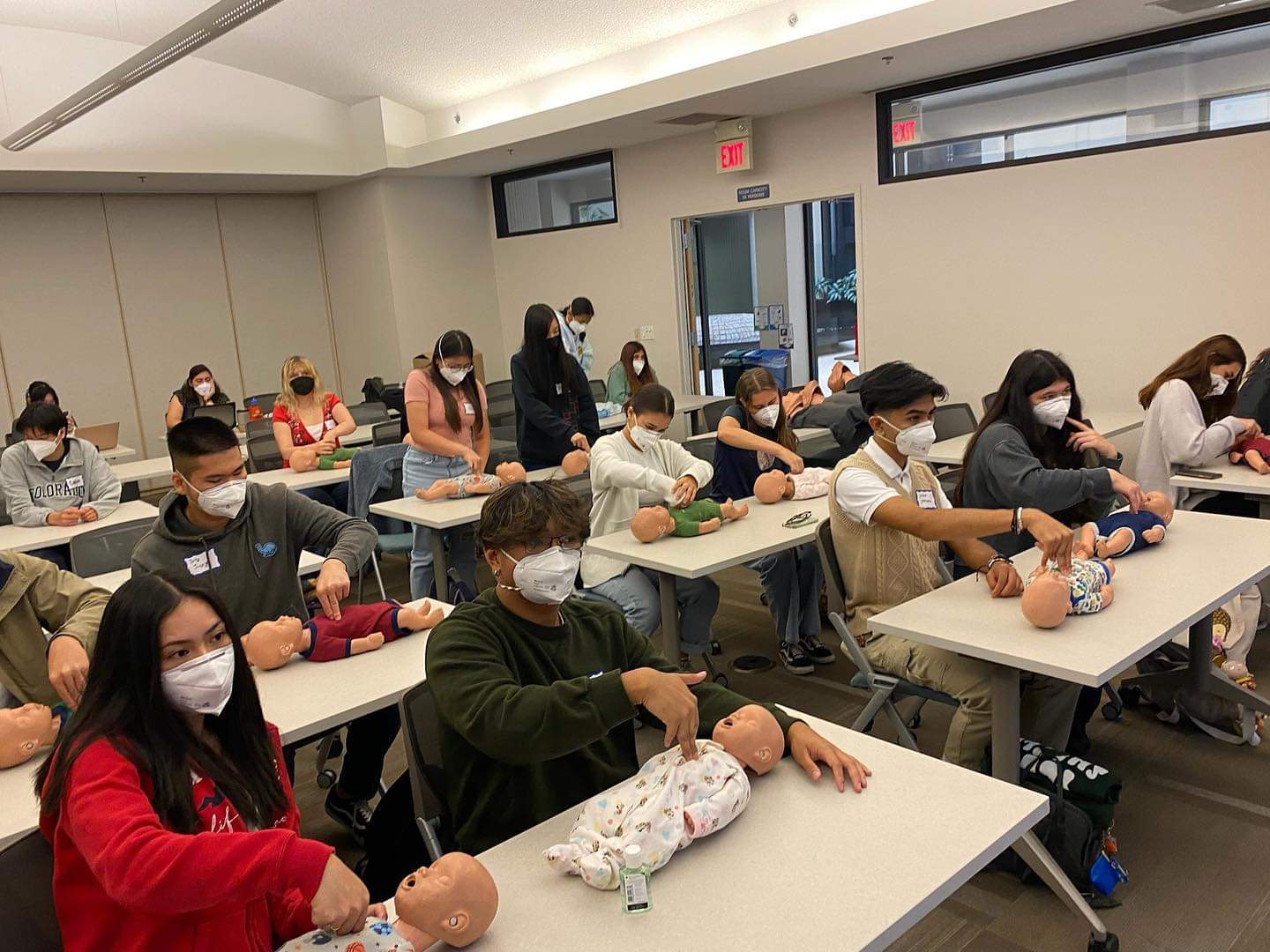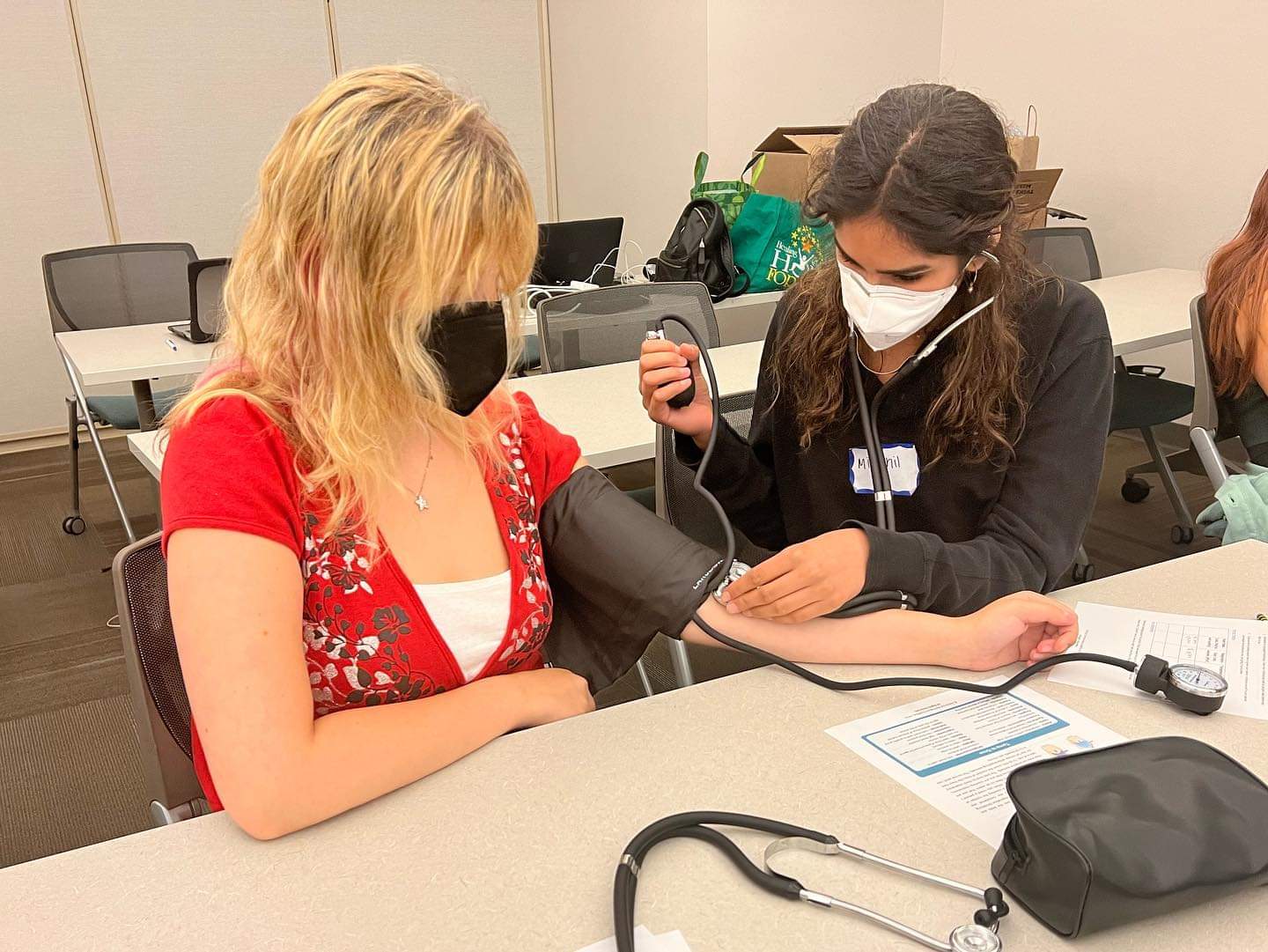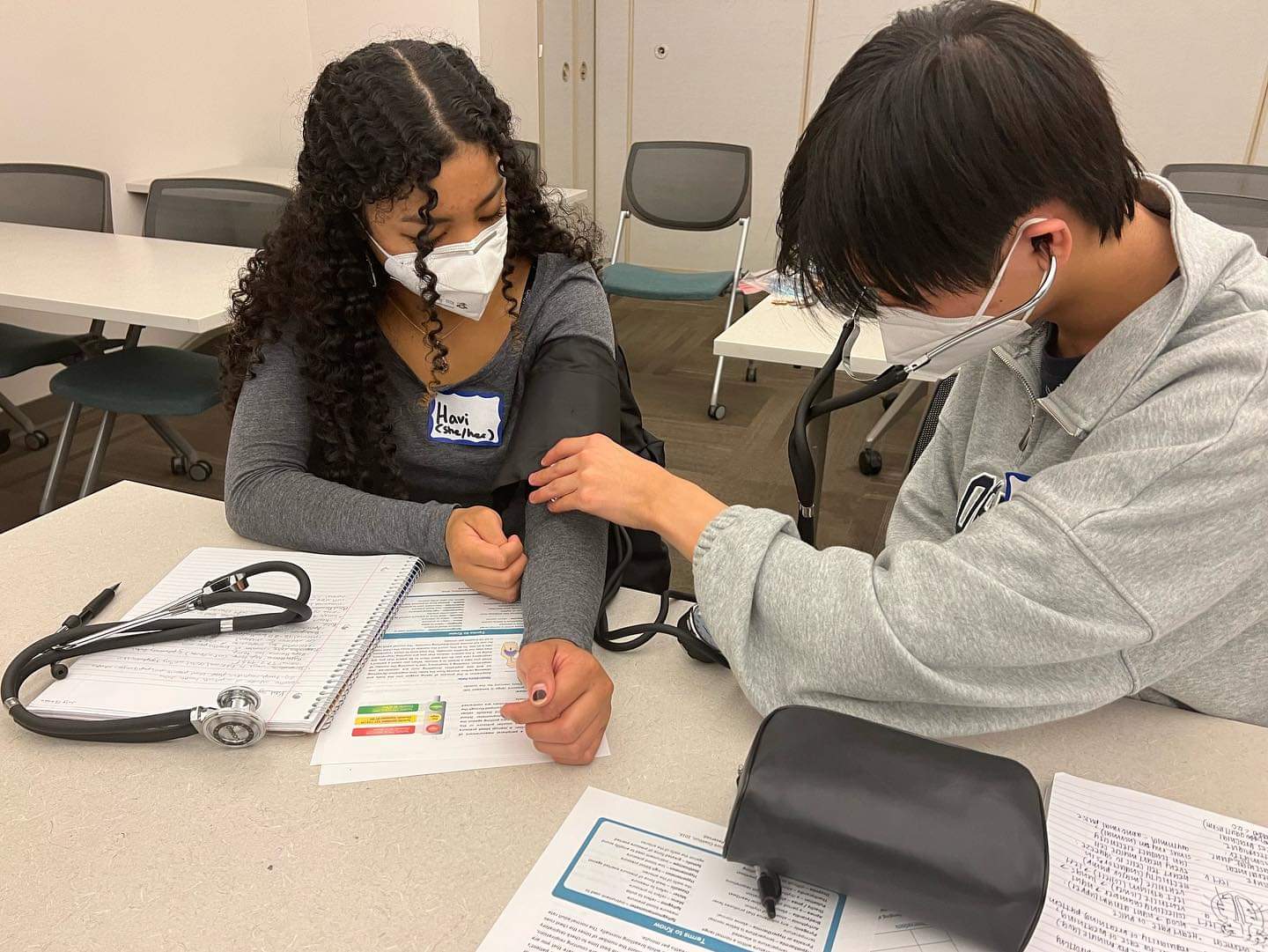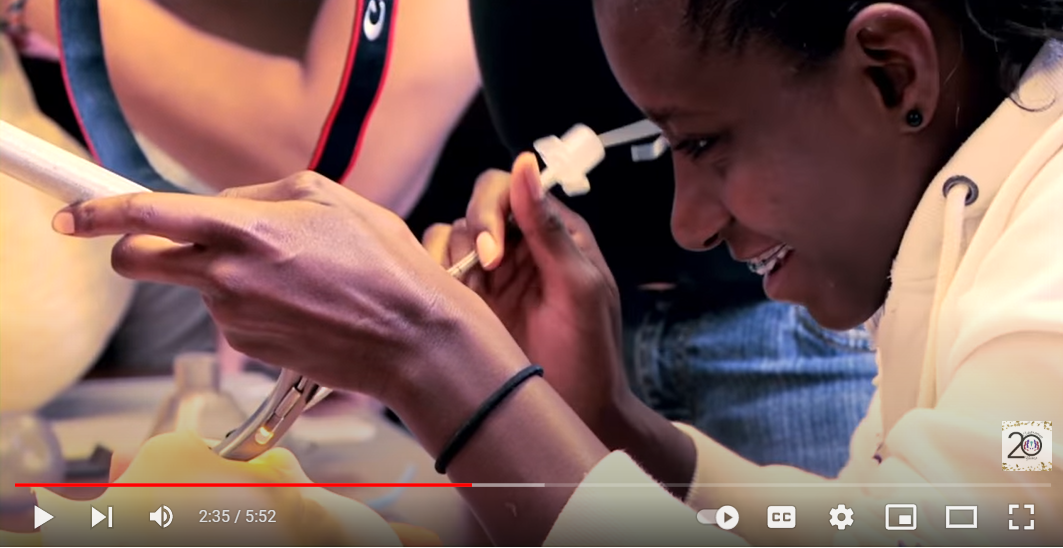FACES Summer Academy Prepares Students with Hands-On Medical Training
Program
Highlights
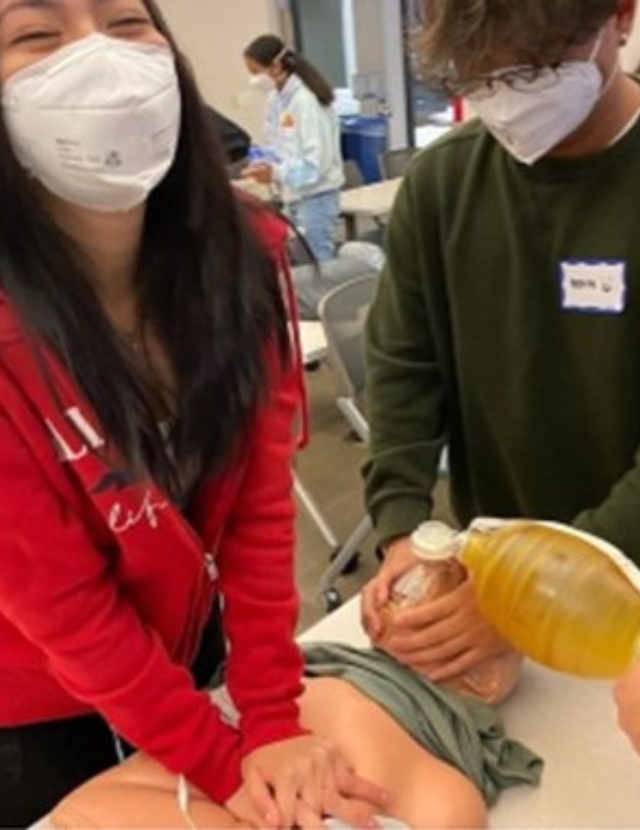
Each summer, PHI's FACES for the Future Coalition brings together students for an annual FACES Summer Medical Academy, offering in-person and virtual hands-on learning opportunities, while allowing a space for students to connect with their peers.
2 weeks of intensive hybrid learning for high school students interested in medical careers
4 professional certifications were obtained by the FACES Summer Medical Academy students in 2022
Every year, the Public Health Institute’s FACES for the Future Coalition brings together students for hands-on experiential learning opportunities through their FACES Summer Medical Academy (FSMA). Connecting with peers was critical component for the students, so FSMA offered a hybrid model of in-person and virtual learning opportunities (when possible) to ensure youth could gain this experience.
FSMA allows high school students, ages 15 and over, in-depth and hands-on opportunities to explore their interests in health, develop their clinical skills, and strengthen their knowledge base and skills in medicine. The program exposes youth to new ideas, mentoring opportunities, and other youth with similar interests.
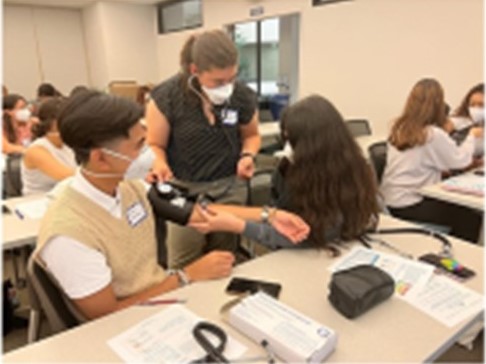
FSMA did an amazing job of creating a fun, productive, and engaging learning environment! I was able to meet new people and create new connections, both with my peers and in connecting to resources and the professionals we met. It was beyond enjoyable!
In the summer program, youth learn how to save lives, respond to crisis situations, explore potential diagnosis and treatment plans for a patient, and have an opportunity to meet with professionals who represent diverse backgrounds and professions in the healthcare field.
Students in the summer program can obtain different professional certifications, such as:
- Mental Health First Aid
- Basic Life Support (CPR)
- Opioid Overdose Intervention
- Stop the Bleed
They also received hands-on experience in areas like: taking vital signs and suturing (surgical stitching to close a wounds or incisions). Students also have a chance to participate in a Medical Mystery activity, where they have to solve a medical case of someone who has undiagnosed health issues.
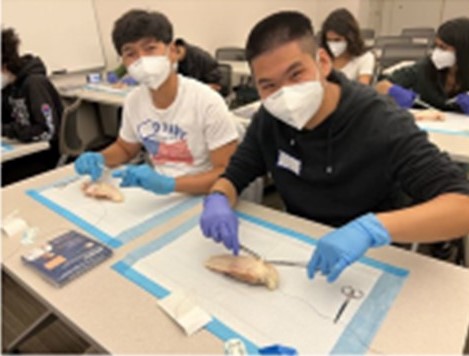
FSMA was incredibly hands-on and engaging. The workshops and trainings were well-selected and very informative. It truly included a variety of health care fields, allowing me to explore different interests in areas I had not thought about much before. The staff and guest speakers were very friendly, kind, and helpful.
Learn more about the FACES Summer Medical Academy on the FACES website.
This impact story was first published as a highlight in the FACES for the Future Coalition update.
Work With Us
You change the world. We do the rest. Explore fiscal sponsorship at PHI.
Support Us
Together, we can accelerate our response to public health’s most critical issues.
Find Employment
Begin your career at the Public Health Institute.
